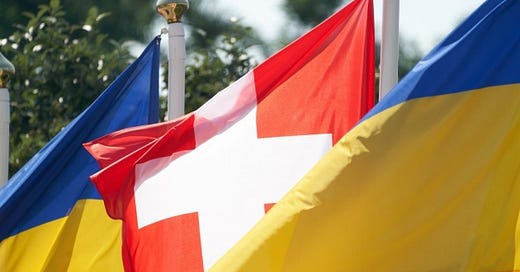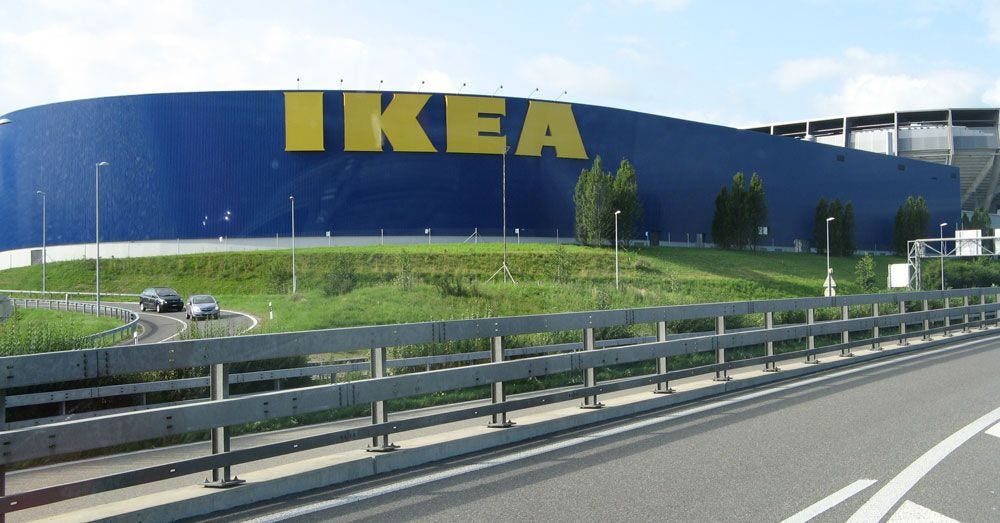Dear Insider,
War is indeed a sad time…
In such times are we now - although in more ways than one. The Russian invasion of Ukraine which began in the early hours of the morning on 24 February has consequences for the world- and Switzerland as well.
Its tradition of neutrality and particular geographic position would seem to ensure the country’s safety, even if fighting should spread to Europe more generally. But Swiss finance’s close connections to Russian wealth, its openness to Russian commodities and international firms all make these tricky times. The upcoming Ukraine Reform Conference, due to be held in Swiss President Ignazio Cassis’s hometown of Lugano in July, is a sign of the mediating role Switzerland has tried to play down through the years. But as usual…there are caveats… (See below.)
When it comes to the battle with climate change, Switzerland lives up to its neutral reputation perhaps even more so than in times of conventional conflict. Many Swiss companies are leading the way towards climate neutrality - a good sign, even if it is only the beginning.
As in every battle, there are ups and downs - and no end in sight.
Not so fast
Swiss President Ignazio Cassis (pictured above) announced that Switzerland would support the sanctions being placed on Russia in connection with the conflict in Ukraine - with some exceptions.
Travel bans would be put in place for the 367 persons on the EU sanctions list.
No personal assets held in Swiss accounts would be frozen. New deposits, however, would not be permitted.
The Federal Government has indicated that it wishes to keep Switzerland from being used as a route to circumvent sanctions - while retaining a neutral stance for diplomatic purposes.
With approximately 80% of Russian commodities such as oil and gas being traded through Switzerland, there are extra incentives to be cautious.
A hidden danger
Even as Swiss sanctions against Russia will not go quite as far as those of the EU and the USA. But that does not mean that Swiss business will not (potentially) suffer.
With no freezing of personal assets, some Swiss banks fear that Russian clients will withdraw liquid assets immediately.
Swiss financial regulator FINMA, however, may place additional oversight on banks which have dealings with oligarchs which fall under international sanctions.
Actions out of step with the rest of the European community, may further weaken the Swiss financial centre and its role in international markets.
To the mountain top
IKEA Switzerland is moving toward increased expansion of its Swiss network of stores - with a particular eye on remote areas, including the more mountainous regions of the country.
Wallis get a new IKEA store, in the town of Riddes, in the second half of 2023.. The town of Chur will also see a new kitchen and furniture “planning studio” built.
With a market share of 11% in Switzerland, IKEA has its main rival in XXXLutz which has also been expanding.
The covid pandemic spurred growth in online sales, up to 28%.
Another line of defence
Data from Switzerland’s largest insurance companies shows a strong increase in the number of firms seeking protection against cyber attacks.
'Prominent firms such as airport handler Swissport and car dealer Emil Frey have recently been the target of hackers.
AXA has recorded a more than 10% increase in the number of firms seeking protection.
For Zurich Insurance, it is a (rapidly) growing business - more than 10’000 clients with both new policies and premiums doubling every single year.
Numbers in the green
How do you measure environmental-friendliness in Switzerland? Here are some numbers to consider - taken from a recent special report from BILANZ Magazine:
Sources of emissions
32% - Traffic (excluding international flights and sailing vessels)
19% - Farming, waste and synthetic gases
24% - Industry
24% - Buildings
Top 5 most eco-friendly firms
1. Swisscom
2. Zug Estates
3. Logitech
4. Zoo Zürich
5. Swiss Re
Profile - Saskia Günther
Head Corporate Responsibility at Swisscom
With experience at some of Switzerland’s largest corporations, Saskia Günther fits well in her position of corporate responsibility for telco giant Swisscom. And she seems to be doing a good job. According to BILANZ Magazine, Günther and Swisscom are the greenest and most eco-friendly corporation in the country. Since 2015, the telecommunications behemoth has been able to reduce its emissions level by 50% - every year.
Günther got her start in the area of sustainability and environmental issues already at ETH Zürich where she received a Master’s degree. She joined Swisscom in 2020, the same year the company officially became climate neutral.








